1960 Plymouth XNR
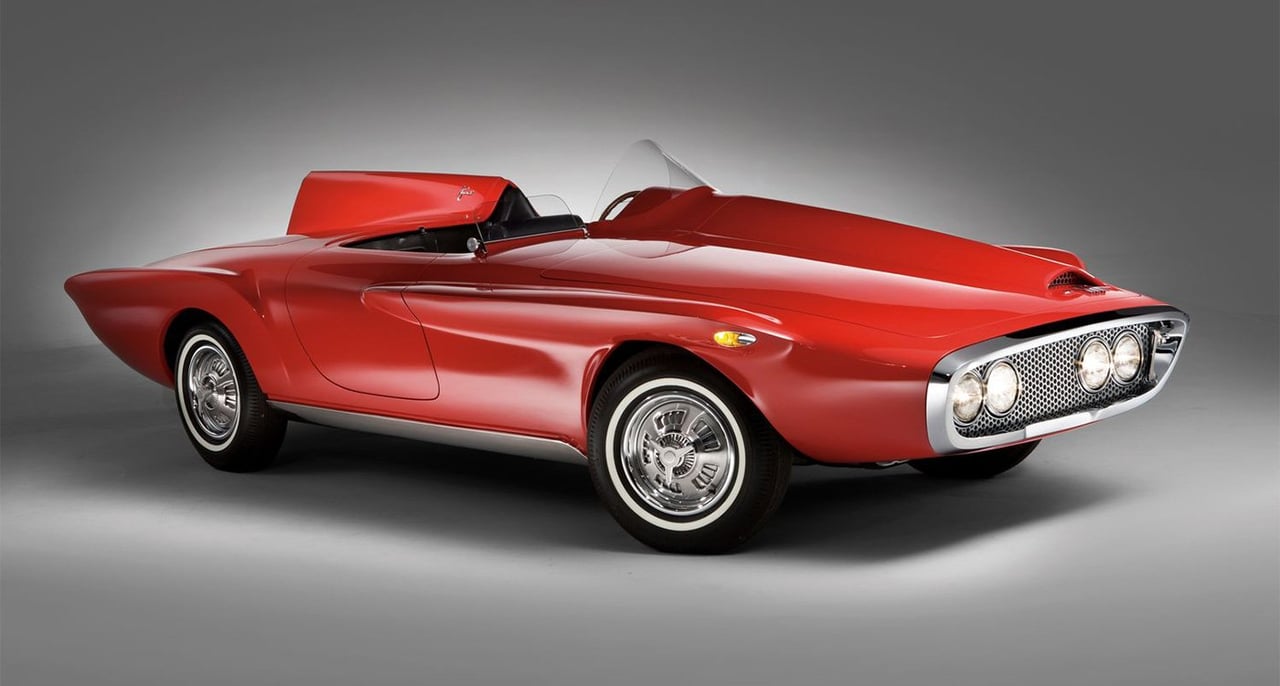
The overtly asymmetrical 1960 Plymouth XNR was both styled by and named after Virgil Exner, who pioneered the symbol of American automotive excess that became so popular in the late '50s and early '60s. Right in the thick of it, Exner used the Plymouth concept to explore an offset theme – supposedly inspired by his father’s love of the Jaguar D-type’s fintail.
1954 Fiat Turbina
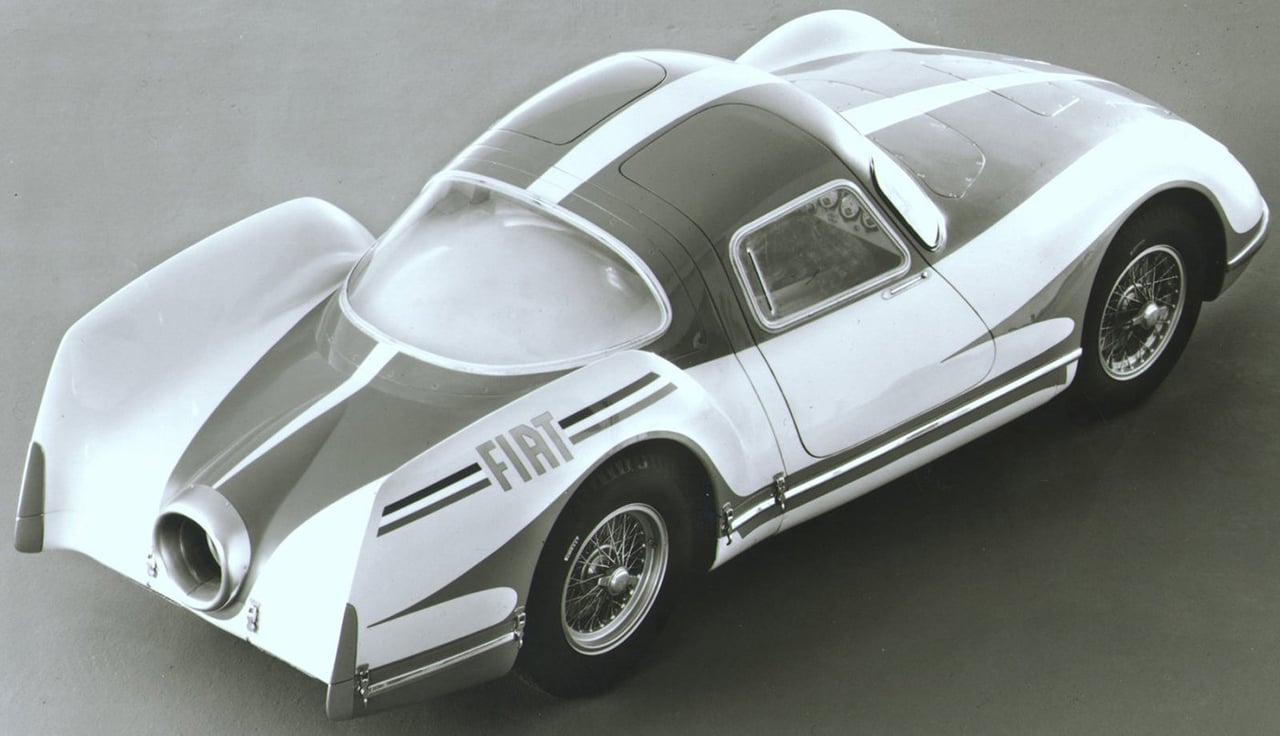
During the 1950s, automotive manufacturers seemed intent on harnessing the power of gas turbine engines for use on the road. In 1954, Fiat became the first European manufacturer to join the party with the Turbina – whose tailfins were not only shown to stabilise the car during wind-tunnel testing, but which also proudly wore the stripes of the Italian flag.
1958 Simca Special
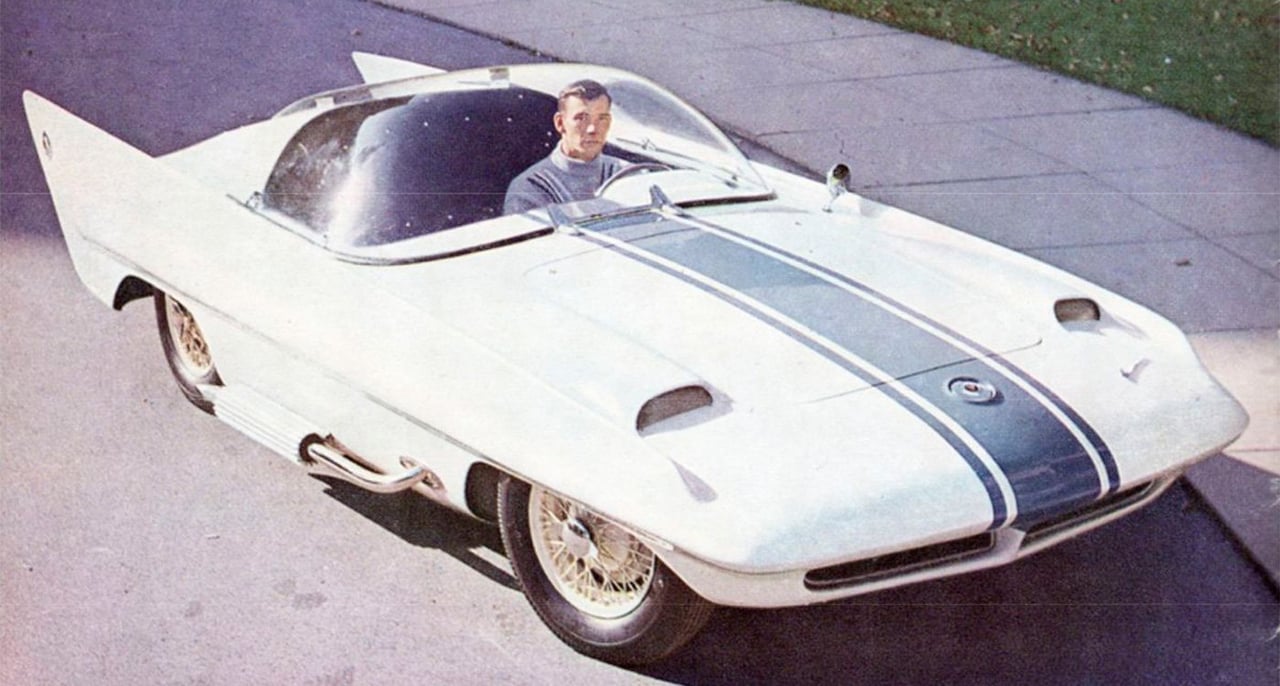
The Simca Special was another Virgil Exner design – not the established design chief, but his son of the same name, who penned the Special as part of his Masters thesis. Following his graduation, V.E. Jnr. worked further on the design, using a Fiat chassis and 1.2-litre Simca engine to turn it into reality. It was subsequently altered to be used as a daily driver.
1954 Alfa Romeo B.A.T. 7
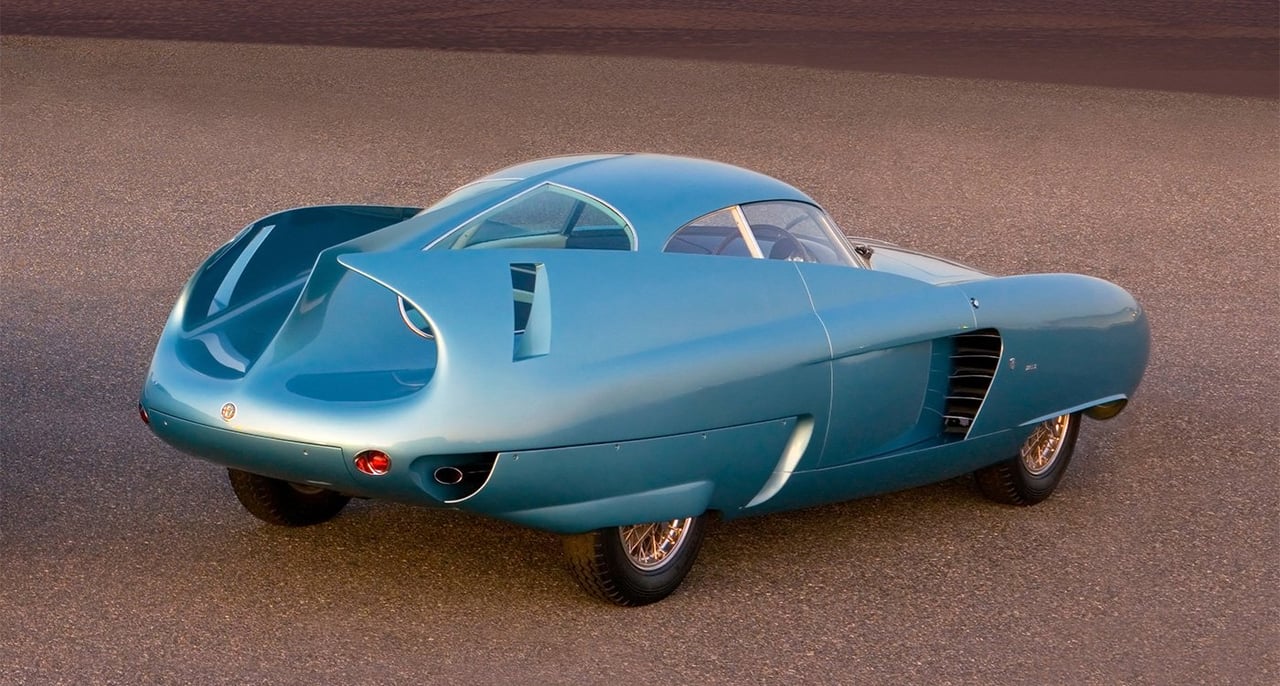
Second in a trio of 1950s concepts collaboratively produced by Alfa Romeo and Bertone, the B.A.T. 7 was an overt demonstration of Nuccio Bertone’s experience in aeronautical aerodynamics. It debuted at same 1954 Turin Motor Show as the Fiat Turbina – and remains one of the few cars that could beat it in a theoretical tailfin Top Trumps.
1955 Ghia 'Gilda' Streamline X
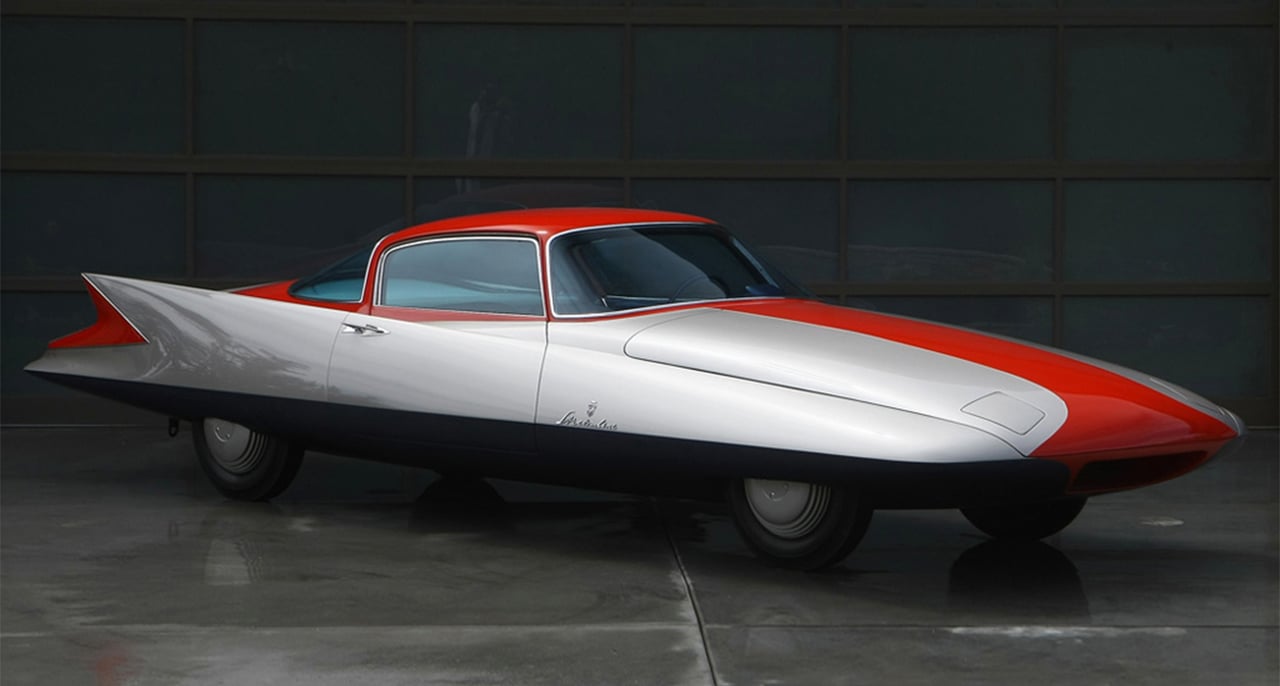
Pre-dating the late-50s ‘tailfin wars’ between Chrysler and GM, the Streamline X – which immediately become known as ‘Gilda’ after Rita Hayworth’s character from the 1946 film of the same name – combined Ghia’s wind-tunnel-tested styling with Chrysler’s exploration of gas turbine engines. The latter ultimately proved to be a fruitless exercise, but the former certainly influenced Exner’s famous ‘Forward Look’ designs.
Photos: RM Auctions, Fiat, Alfa Romeo, Gooding & Co








